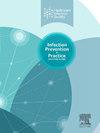医疗保健专业人员在预防导尿管相关性尿路感染方面的知识、态度和实践:一项康复机构的横断面研究
IF 1.9
Q3 INFECTIOUS DISEASES
引用次数: 0
摘要
导尿管相关性尿路感染(CAUTIs)是一种普遍但可预防的卫生保健相关感染。有效的预防需要医疗保健专业人员(HCPs)拥有足够的知识、积极的态度和遵守最佳实践。目的了解马耳他某康复机构医护人员对CAUTI预防和管理的知识、态度和实践情况。方法采用横断面调查方法,于2023年1月至3月采用在线自填问卷进行调查,对医生、护士和护工进行总体抽样(N = 315)。采用SPSS进行描述性和推断性分析。结果被邀请的315名HCPs中,有215名回应,占68.3%。预防caui的KAP水平为中等至充分。不同国籍(P = 0.011)、不同职称(P = 0.010)、不同学历(P = 0.001)的医生、护士态度得分差异显著。医生和护士的CAUTI知识与实践呈正相关(P=0.002, r = 0.309)。护理助理的知识(P<0.001)、态度(P<0.001)和实践分数(P<0.001)在年龄、教育水平、工作经验和最后一次感染预防和控制培训时间的基础上存在显著差异。护理人员的知识与态度(P<0.001, r = 0.471)、知识与实践(P<0.001, r = 0.383)、态度与实践(P<0.001, r = 0.403)呈正相关。结论shcp知识和态度直接影响CAUTI的预防实践。持续教育和有针对性的培训规划对于改进做法和减少与冠状动脉感染相关的患者伤害至关重要。本文章由计算机程序翻译,如有差异,请以英文原文为准。
Healthcare professionals' knowledge, attitudes, and practices in preventing catheter-associated urinary tract infections: a cross-sectional study in a rehabilitation facility
Background
Catheter-associated urinary tract infections (CAUTIs) are prevalent yet preventable healthcare-associated infections. Effective prevention requires healthcare professionals (HCPs) to possess adequate knowledge, positive attitudes, and adherence to best practices.
Objective
To evaluate the knowledge, attitudes, and practices (KAPs) of HCPs regarding the prevention and management of CAUTI in a Maltese rehabilitation facility.
Methods
A cross-sectional survey was conducted with a self-administered online questionnaire from January to March 2023, using total population sampling of doctors, nurses, and nursing assistants (N = 315). Descriptive and inferential analyses were conducted using SPSS.
Results
Of the 315 HCPs invited, 215 responded (68.3%). KAP levels towards CAUTI prevention were moderate to adequate. The attitude scores of doctors and nurses varied significantly based on nationality (P = 0.011), professional designation (P = 0.010), and educational level (P<0.001). Positive correlations were identified between CAUTI knowledge and practices among doctors' and nurses' (P=0.002, r = 0.309). For nursing assistants, significant differences were observed across knowledge (P<0.001), attitude (P<0.001), and practice scores (P<0.001), based on age, educational level, job experience, and timing of their last infection prevention and control training. Positive correlations were observed between knowledge and attitudes (P<0.001, r = 0.471), knowledge and practice (P<0.001, r = 0.383), and attitudes and practice (P<0.001, r = 0.403) for nursing assistants.
Conclusions
HCP knowledge and attitudes directly influence CAUTI prevention practices. Continuous education and targeted training programmes are critical to improving practices and reducing CAUTI-related patient harm.
求助全文
通过发布文献求助,成功后即可免费获取论文全文。
去求助
来源期刊

Infection Prevention in Practice
Medicine-Public Health, Environmental and Occupational Health
CiteScore
4.80
自引率
0.00%
发文量
58
审稿时长
61 days
 求助内容:
求助内容: 应助结果提醒方式:
应助结果提醒方式:


